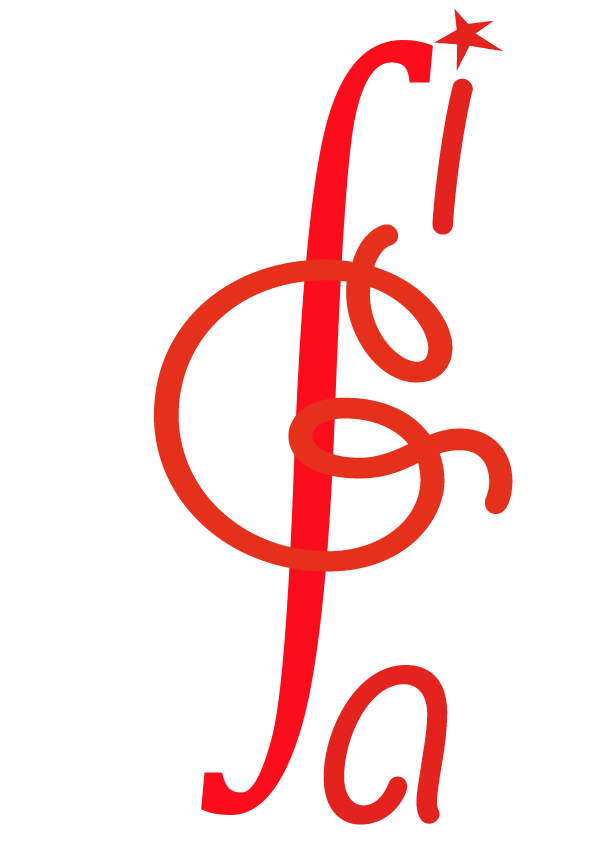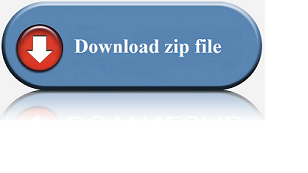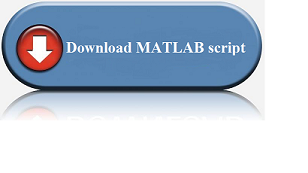About Guaranteed Automatic Integration Library (GAIL)

GAIL is a suite of algorithms for integration problems in one and many dimensions, and whose answers are guaranteed to be correct.
GAIL is created, developed, and maintained by Fred Hickernell (Illinois Institute of Technology), Sou-Cheng Choi (IIT), and their collaborators including Yuhan Ding (IIT), Lan Jiang (Compass), Da Li (IIT alumni), Jiazhen Lu (IIT alumni), Jagadeeswaran Rathinavel (IIT alumni), Lluís Antoni Jiménez Rugama (UBS), Xin Tong (UIC), Kan Zhang (IIT), Yizhi Zhang (Jamran International), Xiaoyang Zhao (Chicago Institute of Investment), and Xuan Zhou (J.P. Morgan). It is a free software and could be downloaded via the link below.
To download the latest version of GAIL, follow one of the links below to:
Get zip file OR run the MATLAB installation script
To view the user guide, please see here.
News
-
GAIL version 2.3.2 was released on May 9, 2021 (Mother’s Day)
-
GAIL version 2.3.1 was released on June 21, 2020 (Father’s Day)
-
GAIL version 2.3 was released on July 12, 2019 (National Simplicity Day)
-
GAIL version 2.2 was released on August 28, 2017 (Chinese Valentine’s Day)
-
GAIL version 2.1 was released on March 14, 2015 (Super Pi Day and Albert Einstein’s Birthday)
-
GAIL’s GitHub repository is open to public at https://github.com/GailGithub/GAIL_Dev starting February 6, 2015.
-
GAIL version 2.0 was released on November 1, 2014 (All Saints’ Day).
-
GAIL version 1.3 was released on February 14, 2014 (Valentine’s Day, for our love of the package).
-
GAIL version 1.0 was released on September 3, 2013.
If you find GAIL helpful in your work, please support us by citing the following papers and software.
Free GAIL Software
-
Sou-Cheng T. Choi, Yuhan Ding, Fred J. Hickernell, Lan Jiang, Da Li, Jagadeeswaran Rathinavel, Lluis Antoni Jimenez Rugama, Xin Tong, Kan Zhang, Yizhi Zhang, and Xuan Zhou. GAIL: Guaranteed Automatic Integration Library (Version 2.3.1), MATLAB Software, 2020. (Download zip, or download and run Matlab script, or clone repository. HTML documentation and PDF documentation. Bibtex.)
-
Sou-Cheng T. Choi, Yuhan Ding, Fred J. Hickernell, Lan Jiang, Da Li, Jagadeeswaran Rathinavel, Lluis Antoni Jimenez Rugama, Xin Tong, Kan Zhang, Yizhi Zhang, and Xuan Zhou. GAIL: Guaranteed Automatic Integration Library (Version 2.3), MATLAB Software, 2019. (Download zip, or download and run Matlab script, or clone repository. HTML documentation and PDF documentation. Bibtex.)
-
Sou-Cheng T. Choi, Yuhan Ding, Fred J. Hickernell, Lan Jiang, Da Li, Jagadeeswaran Rathinavel, Lluis Antoni Jimenez Rugama, Xin Tong, Kan Zhang, Yizhi Zhang, and Xuan Zhou. GAIL: Guaranteed Automatic Integration Library (Version 2.2), MATLAB Software, 2017. (Download zip, or download and run Matlab script, or clone repository. HTML documentation and PDF documentation. Bibtex.)
-
Sou-Cheng T. Choi, Yuhan Ding, Fred J. Hickernell, Lan Jiang, Lluis Antoni Jimenez Rugama, Xin Tong, Yizhi Zhang, and Xuan Zhou. GAIL: Guaranteed Automatic Integration Library (Version 2.1), MATLAB Software, 2015. (Download zip, or download and run Matlab script, or clone repository. HTML documentation and PDF documentation. Bibtex.)
-
Sou-Cheng T. Choi, Yuhan Ding, Fred J. Hickernell, Lan Jiang, Lluis Antoni Jimenez Rugama, Xin Tong, Yizhi Zhang, and Xuan Zhou. GAIL: Guaranteed Automatic Integration Library (Version 2.0), MATLAB Software, 2014. (Download zip, or download and run Matlab script, or clone repository. Documentation. Bibtex.)
-
Sou-Cheng T. Choi, Yuhan Ding, Fred J. Hickernell, Lan Jiang, and Yizhi Zhang. GAIL: Guaranteed Automatic Integration Library (Version 1.3.1), MATLAB Software, 2014. (Download zip, or download and run Matlab script, or clone repository. Documentation. Bibtex.)
-
Sou-Cheng T. Choi, Yuhan Ding, Fred J. Hickernell, Lan Jiang, and Yizhi Zhang. GAIL: Guaranteed Automatic Integration Library (Version 1.3), MATLAB Software, 2014. (Download zip, or download and run Matlab script, or clone repository. Documentation. Bibtex.)
-
Sou-Cheng T. Choi, Yuhan Ding, Fred J. Hickernell, Lan Jiang, and Yizhi Zhang. GAIL: Guaranteed Automatic Integration Library (Version 1), MATLAB Software, 2013. (Download zip, or download and run Matlab script, or clone repository. Documentation. Bibtex.)
Papers and Reports
2019
-
Jagadeeswaran Rathinavel and Fred J. Hickernell, Comment on “Probabilistic Integration: A Role in Statistical Computation?”, Statist. Sci., Volume 34, Number 1, 23-28, 2019.
-
Jagadeeswaran Rathinavel and Fred J. Hickernell, Fast automatic Bayesian cubature using lattice sampling, Statistics and Computing 29 (6), pp. 1215-1229, 2019.
-
Jagadeeswaran Rathinavel, Fast automatic Bayesian cubature using matching kernels and designs, Ph.D Thesis, Illinois Institute of Technology, 2019.
2018
-
Yizhi Zhang, Guaranteed Adaptive Automatic Algorithms for Univariate Integration: Methods, Costs and Implementations, Ph.D Thesis, Illinois Institute of Technology, 2018.
-
Fred J. Hickernell, Sou-Cheng T. Choi, Lan Jiang, and Lluís Antoni Jimenez Rugama, Monte Carlo simulation, automatic stopping criteria for, Wiley StatsRef: Statistics Reference Online, pp. 1-7, 2018.
-
Lluís Antoni Jiménez Rugama, Laurent Gilquin, Reliable error estimation for Sobol’ indices, Statistics and Computing, Volume 28, Number 4, Page 725, 2018.
-
F. J. Hickernell, Ll. A. Jim'enez Rugama, and D. Li, Adaptive quasi-Monte Carlo methods for Cubature, Ian Sloan’s 80th Birthday Fetschrift.
2017
-
Sou-Cheng T. Choi, Yuhan Ding, Fred J. Hickernell, Xin Tong, Local adaption for approximation and minimization of univariate functions, Journal of Complexity, 40, pp. 17-33, 2017.
-
Fred J. Hickernell, The Trio Identity for Quasi-Monte Carlo Error, Monte Carlo and Quasi-Monte Carlo Methods: MCQMC, Stanford, USA, August 2016 (P. Glynn and A. Owen, eds.).
2016
-
Lan Jiang, Guaranteed Adaptive Monte Carlo Methods for Estimating Means of Random Variables, Ph.D Thesis, Illinois Institute of Technology, 2016.
-
Lluís Antoni Jiménez Rugama, Adaptive quasi-Monte Carlo cubature, Ph.D Thesis, Illinois Institute of Technology, 2016.
-
Daniel S. Katz, Sou-Cheng T. Choi, Nancy Wilkins-Diehr, Neil Chue Hong, Colin C. Venters, James Howison, Frank Seinstra, Matthew Jones, Karen Cranston, Thomas L. Clune, Miguel de Val-Borro, Richard Littauer, Report on the Second Workshop on Sustainable Software for Science: Practice and Experiences (WSSSPE2), Journal of Open Research Software, Volume 4, Number 1, e7, 2016.
2015
-
Sou-Cheng T. Choi, Yuhan Ding, Fred J. Hickernell, Lan Jiang, Lluis Antoni Jimenez Rugama, Xin Tong, Yizhi Zhang, and Xuan Zhou, GAIL—Guaranteed Automatic Integration Library in MATLAB: Documentation for Version 2.1, Technical Report, Illinois Institute of Technology, 2015.
-
Yuhan Ding, Guaranteed Adaptive Univariate Function Approximation, Ph.D Thesis, Illinois Institute of Technology, 2015.
-
Fred J. Hickernell and Lluís Antoni Jiménez Rugama, Reliable Adaptive Cubature Using Digital Sequences, Monte Carlo and Quasi-Monte Carlo Methods 2014 (R. Cools and D. Nuyens, eds.), Springer-Verlag, Berlin, 2015.
-
Lluís Antoni Jiménez Rugama and Fred J. Hickernell, Adaptive Multidimensional Integration Based on Rank-1 Lattices, Monte Carlo and Quasi-Monte Carlo Methods 2014 (R. Cools and D. Nuyens, eds.), Springer-Verlag, Berlin, 2015.
-
Xuan Zhou, Function Approximation with Kernel Methods, Ph.D Thesis, Illinois Institute of Technology, 2015.
-
Xuan Zhou and Fred J. Hickernell, Tractability of function approximation with product kernels, Monte Carlo and Quasi-Monte Carlo Methods 2014 (R. Cools and D. Nuyens, eds.), Springer-Verlag, Berlin, 2015.
2014
-
Xin Tong, A Guaranteed, Adaptive, Automatic Algorithm for Univariate Function Minimization, M.S. Thesis, Illinois Institute of Technology, 2014.
-
Fred J. Hickernell, Lan Jiang, Yuewei Liu, and Art B. Owen, Guaranteed conservative fixed width confidence intervals via Monte Carlo sampling, Monte Carlo and Quasi-Monte Carlo Methods 2012 (J. Dick, F. Y. Kuo, G. W. Peters, and I. H. Sloan, eds.), pp. 105-128, Springer-Verlag, Berlin, 2014, DOI: 10.1007/978-3-642-41095-6_5</a>. (PDF)
-
N. Clancy, Y. Ding, C. Hamilton, F. J. Hickernell, and Y. Zhang, The complexity of guaranteed automatic algorithms: Cones, not balls, Journal of Complexity, 30, pp. 21-45, 2014, DOI: 10.1016/j.bbr.2011.03.031. (PDF)
-
Sou-Cheng T. Choi, MINRES-QLP Pack and Reliable Reproducible Research via Supportable Scientific Software, Journal of Open Research Software, 2014.
-
Daniel S. Katz, Sou-Cheng T. Choi, Hilmar Lapp, Ketan Maheshwari, Frank Löffler, Matthew Turk, Marcus D. Hanwell, Nancy Wilkins-Diehr, James Hetherington, James Howison, Shel Swenson, Gabrielle D. Allen, Anne C. Elster, Bruce Berriman, Colin Venters, Summary of the First Workshop on Sustainable Software for Science: Practice and Experiences (WSSSPE1), Journal of Open Research Software, 2014
Courses and Notes
Sou-Cheng T. Choi and Fred J. Hickernell, IIT MATH-573 Reliable Mathematical Software [Course Slides], Illinois Institute of Technology, Chicago, IL, 2013. (slides)
Presentations and Slides
2019
2018
2017
2016
- Guaranteed Local Adaptive Interpolation, Joint Mathematics Meetings, Seattle, WA, January 6-9, 2016
2015
-
Meshfree Methods Seminar, Illinois Institute of Technology, Chicago, IL, Fall 2015:
-
Applications of Guaranteed Adaptive Quasi-Monte Carlo Algorithms (Part 1)
-
Applications of Guaranteed Adaptive Quasi-Monte Carlo Algorithms (Part 2)
-
Guaranteed Adaptive Quasi-Monte Carlo Algorithms with Control Variates
-
Pricing digital, basket and American options in GAIL—Guaranteed Automatic Integration Library
-
Guaranteed Adaptive Univariate Function Approximation
-
Application of Approximate Dynamic Programming and Monte Carlo Simulation in Pricing American Basket Option
-
Guaranteed Adaptive Monte Carlo Methods for Estimating Means of Random Variables
-
Reliable Adaptive Algorithms for Integration, Interpolation and Optimization, University of Illinois at Chicago, Chicago, IL, Oct 5, 2015
-
Pricing Digital, Basket and American Options in GAIL—Guaranteed Automatic Integration Library, poster session presented at: AMS Central Fall Sectional Meeting, Chicago, IL, Oct 3, 2015
-
Applications for Guaranteed Adaptive quasi-Monte Carlo Algorithms, Approximation of High-Dimensional Numerical Problems – Algorithms, Analysis and Applications Workshop, BIRS, Banff, Canada, Sep 27– Oct 2, 2015.
-
Guaranteed Fixed-Width Confidence Intervals for Monte Carlo and Quasi-Monte Carlo Simulation, 47èmes Journées de Statistique de la SFdS, Lille, France, Jun 1, 2015
-
Guaranteed Fixed-Width Confidence Intervals for Monte Carlo and Quasi-Monte Carlo Simulation, Virginia Tech, Blacksburg, Virginia, Apr 30, 2015
-
Adaptive Monte Carlo and Quasi-Monte Carlo Integration, SIAM Conference on Computational Science and Engineering, Salt Lake City, Utah, Mar 16, 2015
-
A New Guaranteed Adaptive Trapezoidal Rule Algorithm, Meshfree Methods Seminar, Illinois Institute of Technology, Chicago, IL, Feb 18, 2015
-
Adaptive Algorithms for Computing Expectations and Integrals, 2015 Joint Math Meetings, San Antonio, TX, Jan 10-13, 2015
-
A Guaranteed, Adaptive, Automatic, Algorithm for Univariate Function Minimization, ACNW Optimization Workshop, Chicago, Illinois, Jun 8, 2015.
2014
-
Meshfree Methods Seminar, Illinois Institute of Technology, Chicago, IL, Aug 23-Dec 12, 2014:
-
Interpolation Using Kernel Methods With Guaranteed Error Bounds
-
Some Thoughts on Guaranteed Function Approximation Satisfying Relative Error
-
Deterministic Guaranteed Automatic Local-Adaptive Algorithm for Univariate Function Approximation
-
Reliable Error Estimation for Monte Carlo and Quasi-Monte Carlo Simulation, IEMS Department Seminars, Northwestern University, Evanston, IL, Oct 7, 2014
-
Guaranteed Monte Carlo Methods for Bernoulli Random Variables (Poster), Approximation, Integration, and Optimization Workshop, ICERM at Brown University, Providence, RI, Sep 29-Oct 3, 2014
-
Information-Based Complexity and Stochastic Computation Workshop, ICERM at Brown University, Providence, RI, Sep 15-19, 2014:
-
Generalizing the Tolerance for Guaranteed QMC Algorithms (Poster)
-
Tractability of Function Approximation Problems With Kernels of a Product Form (Poster)
-
Deterministic Guaranteed Automatic Algorithms in Univariate Approximation (Poster)
-
Minisymposium on Reliable Computational Science, Part I, Part II, SIAM Annual Meeting, Chicago, July 7-11, 2014:
-
The Scholarly Work of Reliable and Well-Designed Mathematical Software
-
Generation of Appropriate Publication Citations by Numerical Software Libraries
-
A Deterministic Guaranteed Automatic Algorithm for Univariate Function Approximation
-
Constructing Guaranteed Automatic Numerical Algorithms for Univariate Integration
-
Contributed talks, SIAM Annual Meeting, Chicago, July 7-11, 2014:
-
Tractability of Function Approximation Problems with General Kernels
-
A Guaranteed Automatic Integration Library for Monte Carlo Simulation
-
Constructing Numerical Algorithms that Can Be Trusted, BNU-HKBU United International College, Zhuhai, China, June 20, 2014. News, Poster.
-
Reliable Reproducible Research in Computational Sciences through Sustainable Software Practices, Chinese Academy of Sciences, Beijing, China, June 19, 2014.
-
Meshfree Methods Seminar, Illinois Institute of Technology, Chicago, IL, May 19-Aug 10, 2014:
-
A Guaranteed, Adaptive, Automatic Algorithm for Univariate Function Minimization
-
A Deterministic Guaranteed Automatic Algorithm for Univariate Function Approximation
-
Constructing Guaranteed Automatic Numerical Algorithms for Univariate Integration
-
Generalizing the tolerance function for guaranteed algorithms.
-
Eleventh International Conference on Monte Carlo and Quasi-Monte Carlo Methods in Scientific Computing (MCQMC 2014), Leuven, Belgium, April 6-11, 2014:
-
Reliable Error Estimation for Cubature Using Sobol’ sequences
-
Tractability of Function Approximation Problems with General Kernels
-
Error Estimation for Multidimensional Integration Based on Rank-1 Lattices
-
Guaranteed Adaptive, Automatic, Quadrature, Joint Mathematics Meetings (JMM 2014), Baltimore, MD, Jan 16, 2014.
2013
-
GAIL: Guaranteed Automatic Integration Library, Math Tea and Talk, SIAM Student Chapter, Illinois Institute of Technology, Chicago, IL, Nov 20, 2013.
-
Constructing Reliable Automatic Numerical Algorithms, Departmental Colloquium, Department of Applied Mathematics, Illinois Institute of Technology, Chicago, IL, Nov 18, 2013.
-
Guaranteed Automatic Integration Library (GAIL), Meshfree Methods Seminar, Illinois Institute of Technology, Chicago, IL, Aug 8, 2013.
-
Guaranteed Automatic Integration Library (GAIL) Version 1—before and after, Meshfree Methods Seminar, Illinois Institute of Technology, Chicago, IL, Aug 6, 2013.
-
Constructing Trustworthy Automatic Numerical Integration Algorithms, _ Midwest Numerical Analysis Day_, University of Chicago, Chicago, IL, May 25, 2013.
-
Reliable Reproducible Research & Staunch Scientific Software—A Proposal for CubMC: Guaranteed MC Quadrature, Meshfree Methods Seminar, Illinois Institute of Technology, Chicago, IL, Feb 5, 2013.
2012
-
Automatic Numerical Algorithms with Performance Guarantees, LANS Informal Seminar, Argonne National Laboratory, Argonne, IL, Jul 25, 2012.
-
Monte Carlo algorithms where the integrand size is unknown, The Tenth International Conference on Monte Carlo and Quasi-Monte Carlo Methods in Scientific Computing (MCQMC), Sydney, Australia, Feb 16, 2012.
-
The Reliability of Error Estimates for Multivariate Numerical Integration, Joint Mathematics Meetings AMS Special Session, Boston, MA, Jan 4, 2012.
2011
- Recent Developments in Quasi-Monte Carlo Methods, Summer Seminar Series, Department of Statistics, University of Chicago, Chicago, IL, Sep 6, 2011.
Events of Interest
-
Special Session on Frontiers in Computational Mathematics, AMS Central Fall Sectional Meeting, Chicago, IL, Oct 3, 2015
-
3rd Workshop on Sustainable Software for Science: Practice and Experiences (WSSSPE3), Boulder, CO, September 28-29, 2015.
-
E-science ReseaRch leading tO negative Results (ERROR), 11th IEEE eScience conference, Munich, Germany, August 31-September 4, 2015.
-
A seminal course Reliable Mathematical Software offered at IIT in fall 2013. Here are the syllabus and slides.
-
First Workshop on Sustainable Software for Science: Practice and Experiences (WSSSPE1), held in conjunction with SC13, 17 November 2013, Denver, CO, USA
For Help
- Refer to our Wiki pages for information and frequently asked questions.
- Review and search Issues for your questions about GAIL. If it does not help, you may file a new issue ticket and we will respond as soon as we can.
- Email questions and comments to gail-users@googlegroups.com.
To Help
The GAIL routines come with comprehensive online documentation and their implementation is driven by rigorous unit tests. If you would like to contribute to the software development or documentation of the library, please contact gail-users@googlegroups.com
Acknowledgement
Our work was supported in part by
- the National Science Foundation under grants NSF-DMS-1522687 and NSF-DMS-1115392, and
- the Office of Advanced Scientifi c Computing Research, Office of Science, U.S. Department of Energy, under contract DE-AC02-06CH11357.
We thank the contributions of Aleksei Sorokin, Noah Grudowski, Francisco Hernandez, Cu Hauw Hung, Yueyi Li, Xincheng Sheng, Xiaoyang Zhao, Tianci Zhu, and the IIT classes of SCI 498 Adaptive Monte Carlo Algorithms with Applications to Financial Risk Management, Summer 2016; MATH 491 Reading & Research, Summer 2015; SCI 498/MATH 491 Computational Social Sciences, Summer 2016; MATH 491-195 Solving Problems in the Social Sciences Using Tools from Computational Mathematics and Statistics, Summer 2015; Math 573 Reliable Mathematical Software, Fall 2013.

